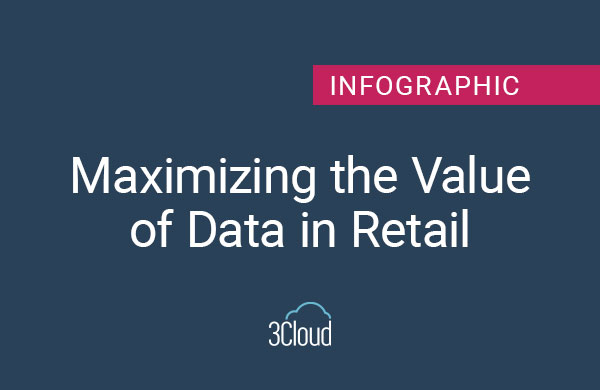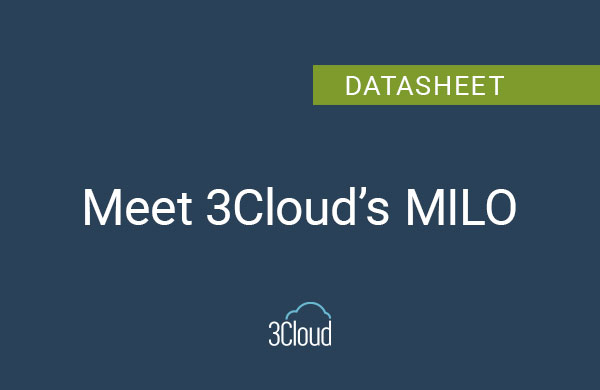The healthcare industry is navigating a perfect storm. Data volumes continue to mount, yet roughly 97% remain unused. Patient expectations are higher than ever, while 3 in 5 physicians suffer burnout. And to top it all off, healthcare had the highest data security breach cost out of any industry this year.
If you’re a technology or operations lead, you’re likely sitting at the center of this storm. But what’s promising is investment in AI is coming for healthcare, impacting everything from patient care and hospital operations to clinical support and drug discovery. According to a recent survey, nearly one-fifth of technical leaders reported a staggering 300% budget growth for generative AI (GenAI).
For leaders like you, you’ve seen the rapid advancement of AI and GenAI technologies. Now, you’re witnessing the rise of several promising real-world applications of AI in healthcare, so long as you can address data challenges. Here, we’ll explore how that’s beginning to take shape and how today’s IT leaders can build the foundation within their organizations through Microsoft Fabric.
Healthcare Innovations in Action: Real-world AI applications
AI and GenAI’s applications in healthcare are diverse.
Take, for example, automation, which is helping to alleviate some of healthcare’s most immediate, pressing symptoms. Clinicians required to write clinical notes from every patient interaction are drowning under the administrative burden. With AI, patient visits are captured in real-time with digital scribes automating clinical notes, saving physicians time and allowing them to focus more on patient care—a win-win for patients and physicians.
Clinical data is one aspect. However, if and when clinical and operational data is centralized and unified, it can have a ripple effect. In this case, that may look like:
- Data analysts at large-scale hospital systems drawing conversational data insights to support ongoing initiatives such as reporting on social determinants of health.
- Population health directors using these analytical enrichments to help them better understand patient outcomes and satisfaction, thus improving care across encounters and identifying areas of efficiency, which is especially important in value-based care models by which many providers are now holding themselves accountable.
- CIOs charged with managing sensitive data while maintaining regulatory compliance using AI to help source a snapshot of data compliance and ensure it remains adequately protected.
Plus, GenAI has improved back-office productivity by streamlining health insurance prior authorizations, resolution of claims denials, and adjudications.
Healthcare Data Solutions in Microsoft Fabric
Most healthcare data is not text – 80 percent, in most estimations. Healthcare data is siloed across many organizations and many modalities, from two-dimensional X-rays, three-dimensional MRIs, unstructured clinical notes, and huge genomics data files.
GenAI can make sense and act on all that critical information. But first, that data must be brought together, normalized, and then used to train the AI models powerful enough to act on it – which Microsoft Fabric can provide.
Unify and streamline your data on one platform
Answering the problems specific to the healthcare environment requires a digital backbone that is scalable, elastic, and can plug in data to help drive faster, better business outcomes. Microsoft Fabric delivers tools that unify your data onto a single platform, transform it, model it, and then combine real-time analytics in the same environment. Additionally, it incorporates AI capabilities throughout, enabling data analysis, pipeline creation, and report generation using natural language interfaces.
Starting with a unified data foundation, clinical, imaging, claims, DAX Co-pilot, and S2H data are brought together in a multimodal medallion-based lake house, OneLake. Once the data is there, pipelines transform, refine, and enrich that data to then build out organizational use cases, relying on industry standards like FHIR and OMOP to ensure compliance. Organizations no longer have to worry about unstructured data. Fabric creates a single source of truth for decision-making.
Maintain security, scalability & compliance
Security and compliance are fundamental, especially in healthcare, where data breaches are costly and can severely impact patient trust and organizational reputation. CIOs use Microsoft Purview to locate and classify sensitive patient data scattered across systems, ensuring it is adequately protected. For example, in the case of patient records and imaging data, it helps apply labels and encryption, restricting access based on policies to ensure only authorized users can access sensitive healthcare data.
With DAX Co-pilot, natively integrated with Azure and Microsoft Fabric, clinicians can use it to capture patient visits, generate clinical notes, and automate tasks. But it works with existing EHR systems. That translates to CIOs being able to standardize documentation practices, enhance clinician productivity, and track impact on operational metrics.
The future of AI in healthcare
The opportunity is exponential, and CIOs are uniquely positioned to lead the transformation. Recently announced at the Microsoft Ignite conference, the roadmap for AI-driven advancements in healthcare to drive operational efficiency, improve clinical outcomes, and foster innovation was multi-faceted.
For example, while large language models (LLMs) excel at text-based tasks, their current iterations require fine-tuning and additional safeguards to perform reliably in clinical settings. Microsoft’s research is focused on fine-tuning GPT-4 for healthcare-specific use cases. In partnering with third-party model providers, Azure subscribers can take their data in Fabric and evaluate, customize, fine-tune, and deploy their own model based on their use cases. So, for example, if an organization wants to build an early warning system for screening dangerous diseases, it can build a highly sensitive model to detect even the faintest hint of a disease in an image.
Currently, Azure AI Foundry subscribers can deploy three categories of models into a HIPAA-compliant endpoint in their Azure subscription. However, the ambition is large, with Microsoft looking to create models themselves and with partners across all modalities in biology and medicine to go after use cases across the discovery, development, and delivery life cycle. These include detecting a disease, estimating the disease progression, predicting the outcome, and even building a personalized treatment plan for a particular patient.
Reinvent the healthcare experience with the right support
Addressing the complexity within the healthcare ecosystem is not impossible but imperative. Turning a perfect storm into a perfect opportunity requires a cloud-powered strategy, and many organizations are turning to Microsoft Fabric to help them support innovative use cases within healthcare.
3Cloud’s extensive partnership with Microsoft and mastery of Microsoft platforms translate into a tailored AI roadmap that prioritizes your vision. Getting the right support can help transform your business, and we’ve had practice. Learn more about how 3Cloud helps healthcare organizations modernize their operation from optimizing data management to reducing costs and enhancing the patient experience.
Ready to reimagine your healthcare operations? Get in touch to discover how 3Cloud can help you accelerate your AI journey, streamline processes, and cut costs.




